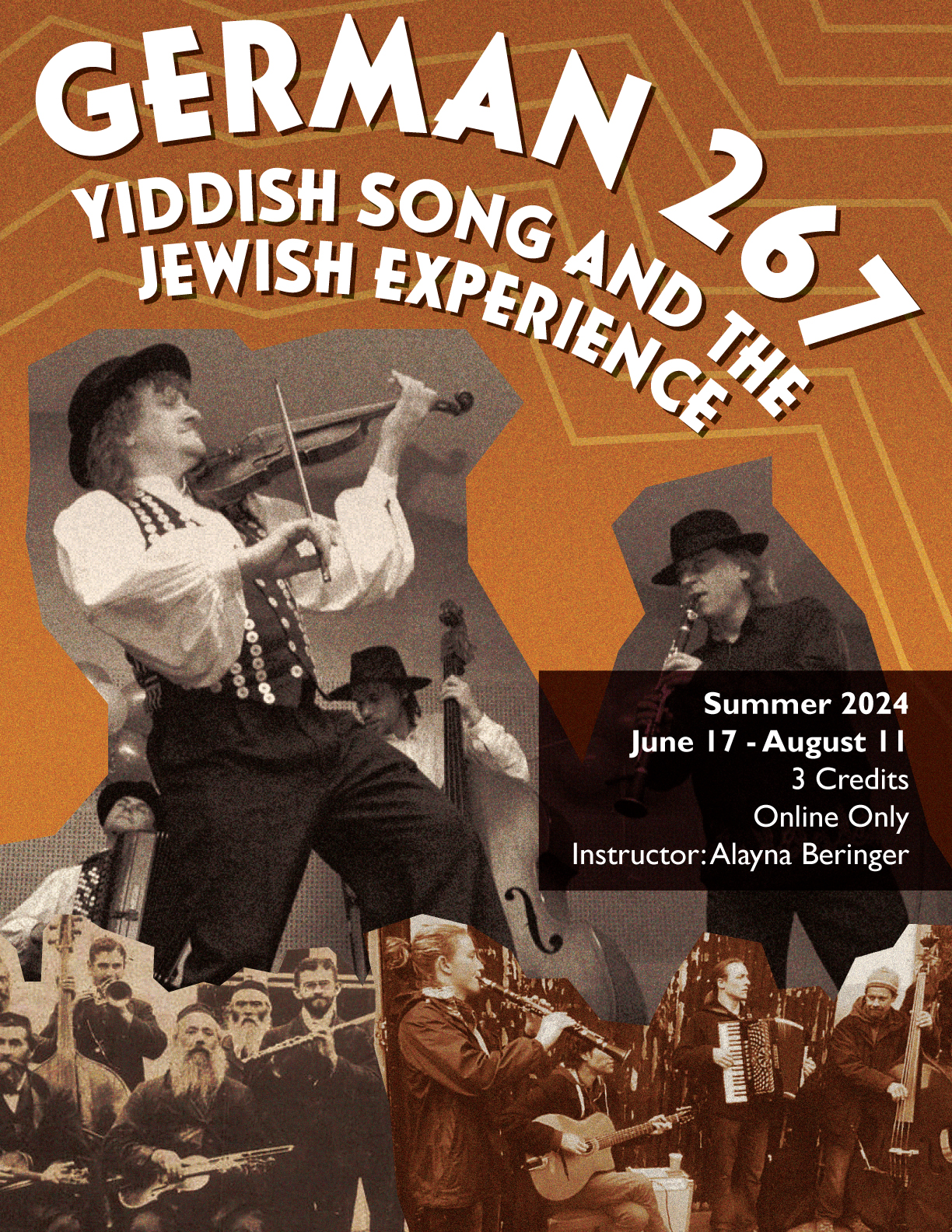
This is an accordion element with a series of buttons that open and close related content panels.
GERMAN 101 - First Semester German
(4 credits)
June 17, 2024 thru August 11, 2024
MTWRF 9:00 – 10:50 am
Course Description: German 101/401 is an introductory course designed for beginners in German who have no previous knowledge of the German language. By the end of the first semester, you should be able to communicate effectively with others in German on a variety of topics, such as personal and public identity, family, education, career goals, and fitness. This class will expose you to authentic texts from a variety of sources in different genres and modes, for you to develop your reading, viewing, and listening skills and engage in critical thinking. Grammar and vocabulary will be introduced in context. Assessments focus on all skills (reading, writing, speaking, and listening). Throughout the semester, you will learn more about yourself and deepen your linguistic and culture knowledge of the German-speaking world. You will also improve your language-learning strategies.
Prerequisites: None
GERMAN 267 - Yiddish Song and the Jewish Experience
(3 credits)
June 17, 2024 thru August 11, 2024
Online only
Course Description: Using the medium of Yiddish song to explore the culture and history of Jews in the diaspora, we will focus on their experience as a minority first in Europe and then in the United States. Facing discrimination, oppression, and marginalization on both sides of the Atlantic, Jews used Yiddish song as a vehicle to express their pain as well as their pride. The goals of this course are to increase students’ capacity to value the unique qualities of Yiddish song as a reflection of the Jewish experience by appreciating the depth of expression conveyed in its sounds and its lyrics, as well as to gain insight into the process of immigration and acculturation in the United States from the perspective of a persecuted group, the challenges it faced in confrontation with new forms of discrimination and marginalization, and the outlet this group found in the performing arts for documenting their struggles and for finding a creative niche in their new surroundings. The experiences of the Jews in the late nineteenth and twentieth centuries are then used as a basis for comparison for the experiences of migrants and the state of antisemitism in America today.
Prerequisites: None